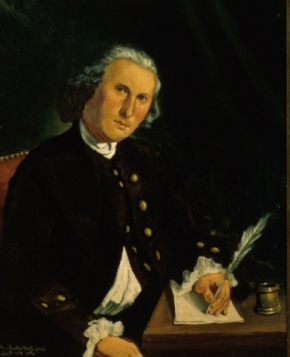You are here
Circuit Court Opinions:
Associate Justice Samuel Chase, United States v. Worrall (1798)

United States v. Worrall, 28 F. Cas. 774 (C.C.D. Pa. 1798) (No. 16,766) [Middle Circuit]
Justice Chase was the only one of the Supreme Court’s earliest members to express hostility to federal court jurisdiction over common law crimes. In earlier cases, such as that of Gideon Henfield in 1793, justices sitting on circuit had allowed prosecutions to proceed despite the lack of a congressional statute defining the crime charged. In Worrall, the defendant was convicted of bribing a federal official, and his attorney made a motion to set aside the judgment. Upon being questioned by Chase, District Attorney William Rawle acknowledged that the prosecution rested solely on the common law.
Chase expressed the view that it was “essential” that Congress define crimes and punishments by statute. The federal government, he asserted, had no common law. “The United States did not bring it with them from England; the constitution does not create it; and no act of congress has assumed it,” he declared. Judge Richard Peters disagreed with Chase. Despite the divided court, Chase acquiesced in the mild sentence Peters imposed. The Supreme Court ultimately adopted Chase’s position, ruling common law prosecutions unconstitutional in United States v. Hudson and Goodwin (1812).
